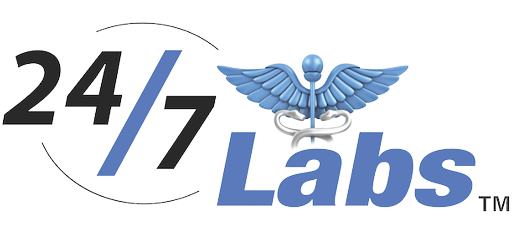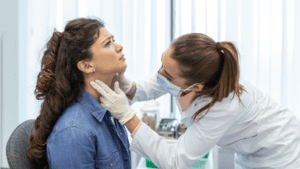According to the Centers for Disease Control, sinus infections affect more than 31 million people a year. Our sinuses are minute air pockets behind the forehead, cheekbones, nose, and eyes. These air pockets contain mucus that helps in trapping harmful bacteria and viruses. However, certain allergens can cause the production and accumulation of mucus in excess quantities, resulting in a sinus infection. Sinusitis, an upper respiratory disorder caused by viruses, bacteria, or fungi, causes inflammation and swelling of the sinuses.
In this blog, we’ll discuss everything you need to know about sinus infections. This includes everything from the various types of sinus infections to their symptoms, treatment, and ways to avoid such infections. Continue reading to learn more.
Types of Sinus Infections
There are several different types of sinus infections out there, each with its own duration, symptoms, and the like.
Acute Sinus Infection
An acute sinus infection typically lasts a short period of time, with most infections running their course in 1 or 2 weeks. Ultimately, sinusitis results from several different causes, including a weak immune system, prolonged cold or flu, and nasal polyps.
Subacute Sinus Infection
Individuals that are diagnosed with a subacute sinus infection can expect its symptoms to last for about three months. In terms of its cause, subacute sinus infections are typically brought on by seasonal allergies and bacterial or viral infections.
Chronic Sinus Infection
As the name implies, chronic sinus infections last for some time. In fact, one typically lasts for more than three months. Of all three types of sinus infections, this one has the most causes, including persistent allergies, viral infections, bacterial infections, recurrent acute sinusitis, immune system deficiency, upper respiratory diseases, and various nasal problems, to name a few.
Symptoms of Sinus Infections

Also known as Rhinosinusitis, according to the World Allergy Organization, sinus infections present different symptoms depending on their cause. Below, you will find some of the most common signs and symptoms one can expect from a sinus infection.
- Decreased smelling sense
- Unexplained fatigue
- Extreme headaches
- Constant runny nose
- Thick and dark mucus discharge from the nose
- High fever
- Puffiness around the eyes
- Coughing and bad breath
- Occasional swelling of the face
- Sore throat
- Nasal stiffness
- Symptoms that don’t respond to over-the-counter medications
Risk Factors for Sinus Infection

Much like many other health issues, the potential for contracting a sinus infection grows when you don’t take care of yourself. Beyond that, however, there are many different risk factors that can increase your chances of getting a sinus infection. Check it out below.
- People with deviated nasal septums (displacement of the tissues of the wall of the nose causing an uneven surface) are at a greater risk of developing sinus infections.
- People with excess cell growth in the nose (non-cancerous cells) can develop sinusitis more easily than others. In addition, the growth of bone in the nose (bone spur) amplifies the chances of sinus infection.
- Extreme exposure to germs, allergies, similar respiratory diseases, and tobacco smoking can increase the chances of acquiring a sinus infection.
Treatment Options for Sinus Infections

There are several treatment options available to reduce the severity of symptoms caused by sinusitis. These include using over-the-counter and herbal medications to help to relieve symptoms and address allergic reactions.
Addressing Nasal Congestion
Addressing the problems of nasal congestion and eventually clearing it is one of the major goals of treating sinusitis. Staying hydrated, using humidifiers, and OTC pain relievers, and sleeping with an elevated head help in the reduction of nasal congestion.
Antibiotics
Antibiotics can help in treating sinusitis. However, they may produce side effects like rashes, abdominal pain, and diarrhea. So, such antibiotics are only used as needed, alongside pain medications and nasal steroid spray.
Surgery
In certain, more severe cases, doctors recommend surgery to remove nasal polyps, and nasal tumors, draining of sinus mucus, and correct the deviated nasal septum.
In Summation

Sinus infections, while unpleasant, are an unavoidable part of life. According to Archbald, sinus infections are so common, in fact, that they result in an estimated 18-22 million doctor’s office visits annually. But, while somewhat unavoidable, there are certain risks and behaviors one should avoid to prevent an increase in the chance of contracting such an infection. In the meantime, don’t forget to go to 24-7Labs for all of your fast, convenient health testing needs.



